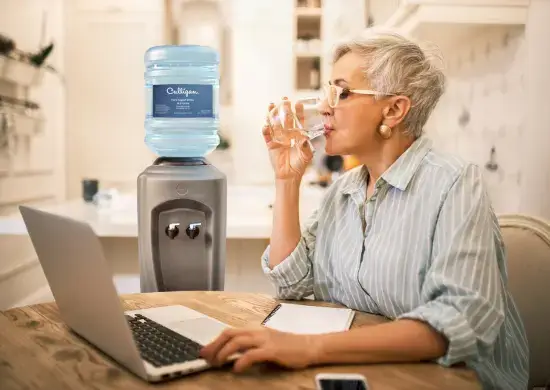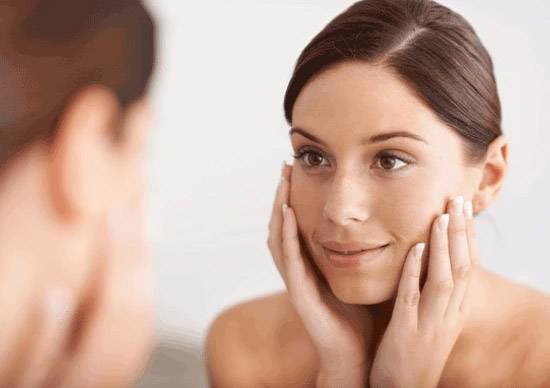

With 60% of our bodies consisting of water, we know that water is important for our health. However, it’s not just about drinking water, it’s important for all aspects of our body including skin, hair, blood, organs, and bones.
Hydration is key to our health, but when we talk about our skin, which is comprised of 64% water, we need to talk about how our bodies are impacted by water that comes in contact with it, not just the water that we consume. For example, is chlorine bad for your skin when you go swimming? Are hot showers damaging your skin?
We’ve put together some information on why increasing your consumption of water is not the only way you can work with water to improve your skin health.
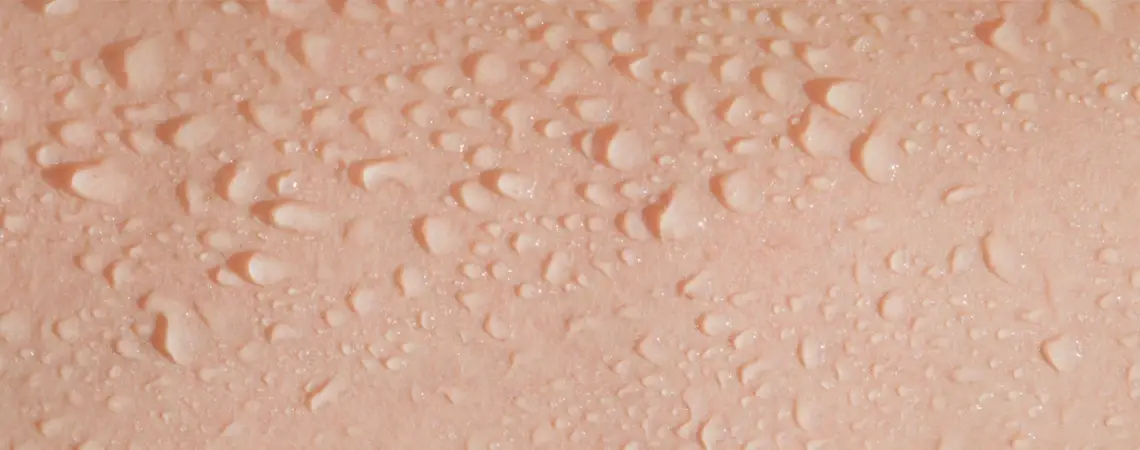
Water and Skin: Outside Your Body
Our skin comes into contact with water regularly. Regardless of whether it’s brief, like running through the rain to your door, or whether it’s longer, like going for a swim or a long bath, all of these instances can have an effect on your skin’s health.
Here are some common ways that we come into contact with water that can affect our skin and what the effects may be:
Hard Water on your skin and hair
The water we are exposed to, whether inside or outside of our homes, can either be hard or soft. In the UK, over 60% of us are in a hard water area. What does that mean, and can hard water affect your skin?
Hard water is when minerals are found in water, such as calcium, potassium, and magnesium. This usually occurs when the rainwater falls and collects the minerals of the stone it lands on. You may not be able to tell if water is hard or soft by looking at it or tasting it, however, your appliances will certainly give you an indication. Hard water causes mineral build-up, also known as “soap scum”, which will appear on your glass shower doors or in your appliances as limescale.
So, what are the effects of hard water on our skin? Does hard water make your skin dry?
Sadly, it’s not just our household and appliances that can be affected by hard water. Our hair can be affected by the water quality being hard. Hair can become brittle and dry, with skin taking the brunt of the effects.
When you’re cleaning your body, whether it be a bath, shower or just washing your hands, minerals can be deposited on your skin. These minerals make removing soap more difficult, resulting in dry skin. Other signs of hard water on the skin can include breakouts, itchiness, and other skin health issues.
That’s why it’s a good idea that you find out if the water in your home is hard or soft.
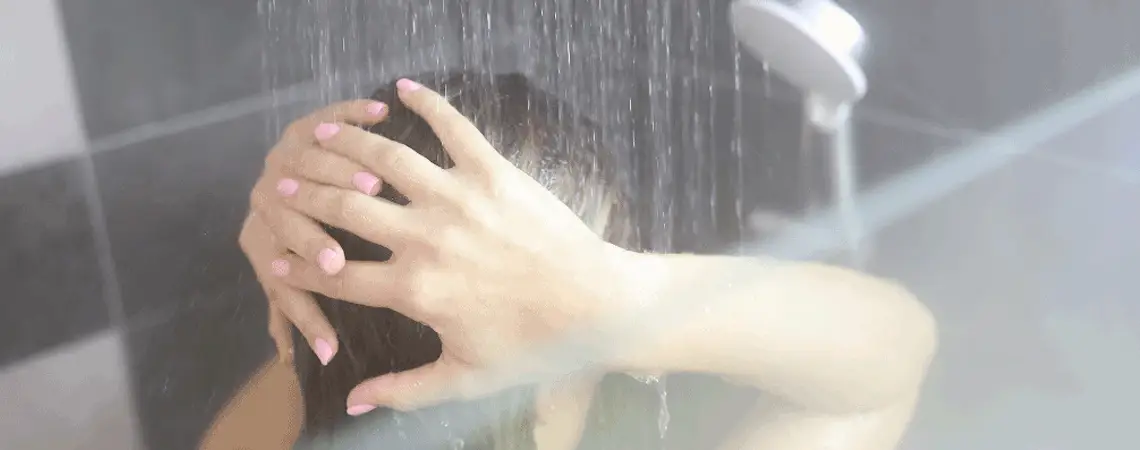
Hot Water and your skin
You may be wondering, does hot water damage your skin? Regardless of whether you take a long shower or bath in soft or hard water, if it’s hot, it can be drying out your skin. Hot water can remove the oils and moisture from your skin, resulting in irritation, redness, peeling, and more.
That’s not to say that you can only wash in cold water. Just be mindful that you take a little less time in hot water, or use lukewarm water, to help your skin and prevent unnecessary dryness.
Swimming Pools and Chlorine on the skin
Whilst swimming is one of the best forms of exercise, it is common to find swimmers with dry skin. There are two predominant causes for this.
First, as you tend to spend a long time in a pool, the water has more time to work on breaking down the natural layer of protective oils on your skin, resulting in a loss of moisture and can leave you with skin hydration issues.
Second, you are probably aware that chlorine is used in the majority of public pools. Exposure to chlorine can cause skin irritation, including dryness. It can also open your pores, causing your skin to lose more moisture. Swimming without showering after can also cause your skin to have a reaction to the chlorine that is left to sit on your skin.
Taking a quick shower after to remove the chlorine from your skin as well as using skin care products once dry can prevent chlorine skin irritation.
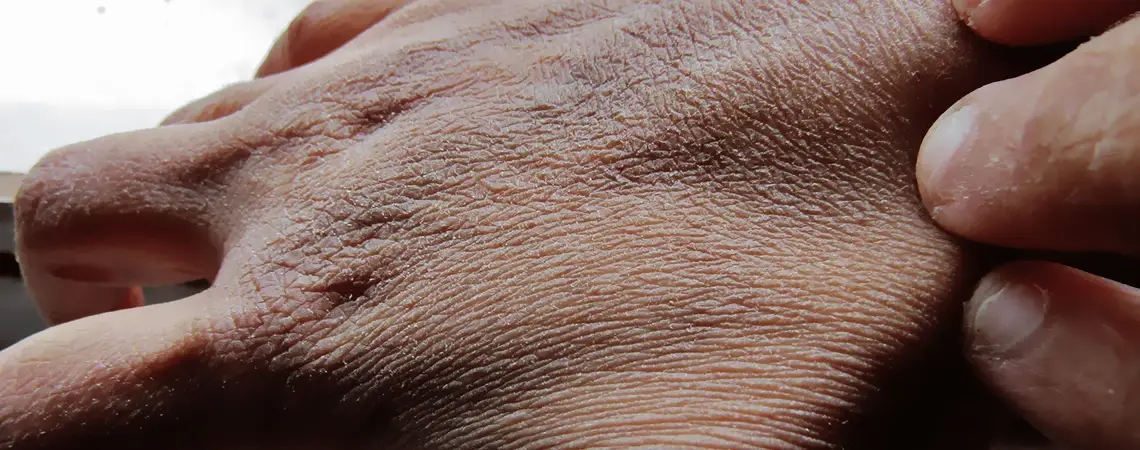
Water and Skin: Inside Your Body
Whilst it’s obvious that there’s a correlation between your skin and the water that comes into contact with it, your hydration and the water inside your body are also working hard to ensure that your skin is healthy. Here are a few things you need to know about this:
Dehydration Resulting in Dry Skin
When you don’t replenish your body’s fluids, you can experience dehydration, which can result in dry skin. This is one of the reasons why drinking water to keep your skin hydrated is important.
In the grand scheme of things, dehydration can affect your body in a lot of ways, and arguably dry skin would be the least of your concerns. Still; it’s important for you to be aware of this.
Hydrate from the Food You Eat
Most people think of drinking water when they think about hydration. However, 20% of your water intake daily comes from solid foods. A further 10% is added to your water intake through the process of digestion.
Here are a few examples of food with high water content:
- Cucumber
- Watermelon
- Celery
- Cauliflower
With that being said, it’s important to remember that the rest of your hydration should come from drinking water. Your daily water intake should be 3.7 litres for men, and 2.7 litres for women minimum.
It May Not All be Down to Water
Whilst yes, drinking water is imperative to maintain your health and well-being, it may not be the only or most direct way to achieve the clear skin you desire. As it stands, it is not obvious what the effect of drinking water is on your skin as there are many factors that can contribute to your skin condition, such as using hard water or soaking in hot water for too long.
Water Benefits for Skin
We can see that water can have both positive and negative impacts on your skin, depending on a number of factors. However, if you take control of your hydration, you can use water to your advantage and improve your skincare.
Here are a few quick tips to get started:
- Evaluate hard water issues: As discussed, hard water can not only irritate your skin and hair, it can also cause damage to your appliances and cause you to spend more money on them and soaps etc. To overcome this, water softeners are a great solution to soften the water in your home.
- Stay Hydrated: Although there is not a direct, clear, connection between hydration and skin health, it’s still important to be mindful of our hydration as our overall health relies on water.
Get in touch if you would like to talk to us about our water softener solutions or drinking water products.
Related articles

